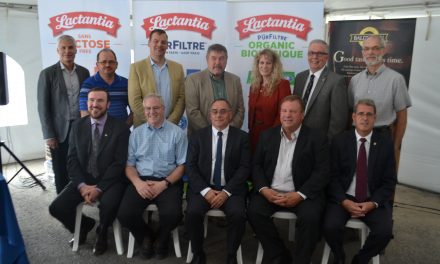
by Donald R. Good, P.Ag.
AgriNews Staff Writer
The farm community has become concerned over the request by an unknown person who has made a Freedom of Information (FOI) request for detailed information on farmers registered under the Farm Registration and Farm Organizations Funding Act (FBR). Should farmers be concerned? The obvious answer is, ‘yes.’
This is one of those cases of the law, of unintended results raising its ugly head. I remember the debate prior to implementing the FBR legislation. The whole purpose of this legislation was to benefit farmers. Through the farm registration process, farmers could receive numerous benefits from government programs as well as municipal tax benefits.
Farm legislation is often reviewed in isolation for what it can provide farmers. Overriding sector specific legislation are a number of laws of general application. The Freedom of Information and Protection of Privacy Act (FOI) was established to provide the public with access to government information and data; the FBR is one of those databases. Farmers register under the FBR, provide personal information and receive benefits, but then become subject to the provisions of the FOI.
The FBR Act itself has very specific limitations on what government can do with the information gathered under the FBR Act. The act limits OMAFRA to using the FBR data to developing agricultural policies and programs, communicating those programs to farmers, as well as delivery of farm programs.
The FOI request received by OMAFRA is suspected as being from a farm activist or group and, therefore, it is reasonable to expect it is not for purposes beneficial to farming. Under the FOI there are important exemptions that allow OMAFRA to refuse a FOI request. There are numerous interacting provisions in the FOI Act that requires disclosure and provides exemptions for the refusal of disclosure. For instance, in the definition section there is the provision: “Personal information does not include the name, title, contact information or designation of an individual that identifies the individual in a business, professional or official capacity.” Farming is a business and I am not sure how this section interacts with the prohibition from releasing personal data.
Most farm organizations have issued notices to their farm members. OMAFRA has reported that it has sent 500 letters to selected farmers requesting feedback. I strongly support the advice of farm organizations for farmers to write/contact OMAFRA and specifically refuse consent under the section referred to above for the release of their specific information under their FBR registration number, regardless of whether you received a letter or not.
The FOI information would provide an activist with a significant list of very farm specific personal information. I have done a little research, and without too much difficulty, using various search engine key words, I could develop a pretty comprehensive list of farmers, their personal contact information, and what they produce. Most commodity farm organizations have member entry portals which allow access to the farm organizations data bases for members only. If someone can access through a sympathetic member– this member only portal, a lot of information can be gleaned from these sources. Finally, a lot of farmers have websites and social media platforms. It is amazing the amount of personal information that can be obtained from the internet, particularly the Canada411 program.
I am sure you are familiar with searching the internet for information on a product and have within minutes/hours received advertising on that very product line. There are big tech companies with large databases on individuals and specific sectors. There have been numerous stories in the farm press over the past years on big farm equipment and seed companies collecting farm data. These entities are in the business of selling data and agriculture is part of this big data business. We have to be careful, and I still recommend that farmers protect their privacy. Let OMAFRA know that you do not consent to the release of your personal data. I would hope, given the clear wording of the FOI Act that OMAFRA will refuse the request. Ontario’s farm organizations should be ready to take a major role if the activist appeals or the decision is in their favour. The appeal under section 50 of the FOI is to the information and privacy commissioner.











